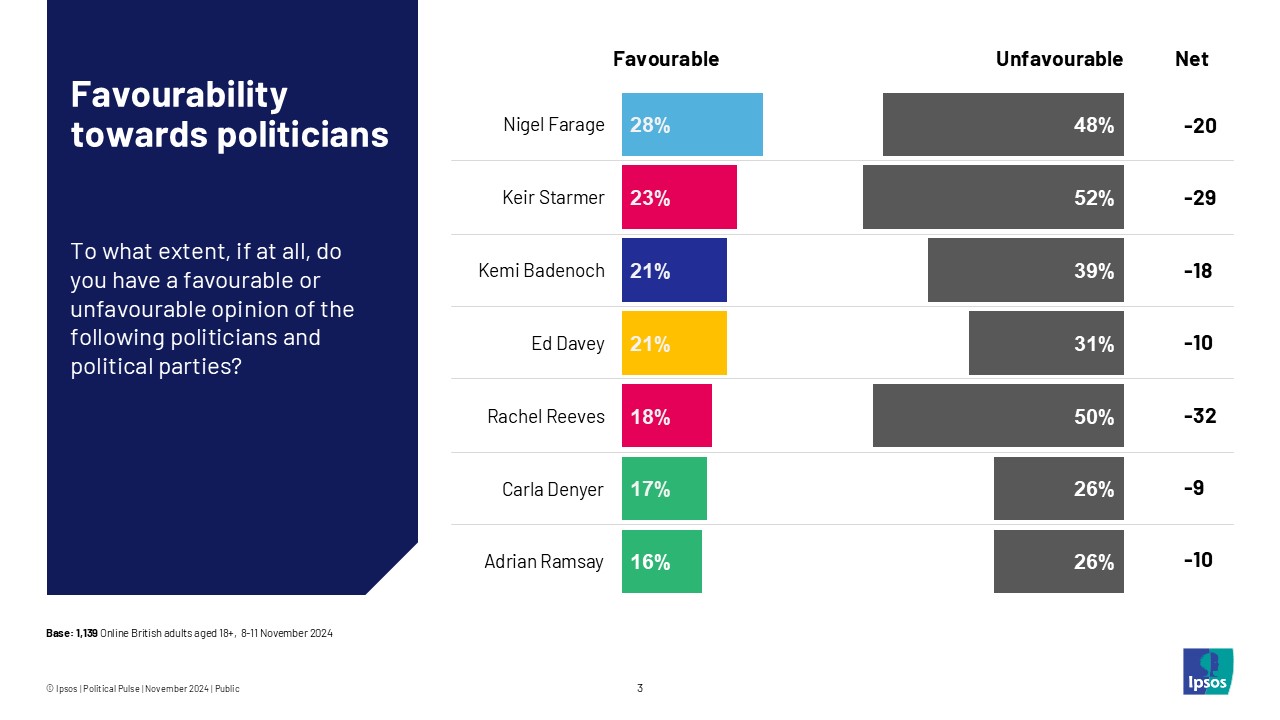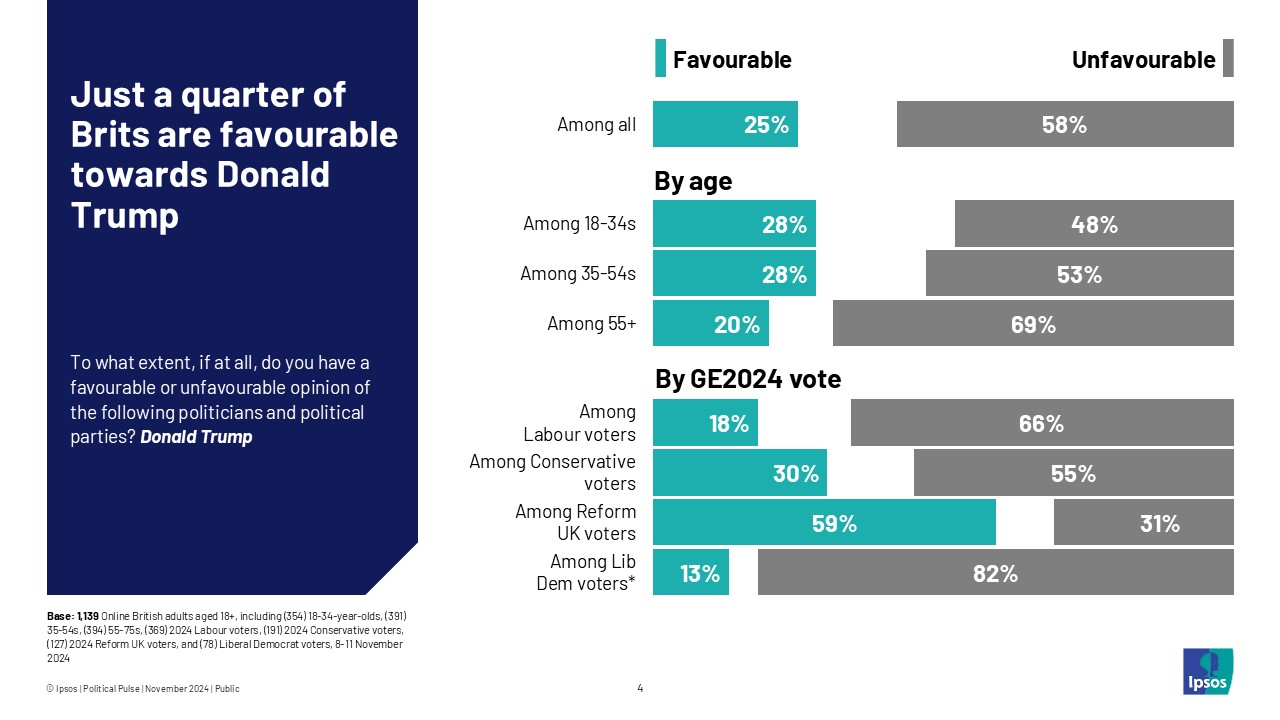Nigel Farage holds highest favourability rating in Ipsos poll, but almost half hold unfavourable opinion of Reform UK leader
A new Ipsos Political Pulse survey, taken between November 8th and 11th, reveals the latest favourability ratings for prominent political figures.
A new Ipsos Political Pulse survey, taken between November 8th and 11th, reveals the latest favourability ratings for prominent political figures.

- Nigel Farage: Holds the highest favourability rating among the listed politicians at 28%, but also faces a substantial unfavourable rating of 48%, resulting in a net favourability score of -20.
- Keir Starmer: The current Prime Minister's favourability stands at 23% (-3 from October), while half (52%) of Britons express an unfavourable view (no change), leading to a net rating of -29.
- Kemi Badenoch: The new Leader of the Opposition holds a net favourability rating of -18, with 21% favourable and 39% unfavourable.
- Rachel Reeves: The Chancellor of the Exchequer holds a net favourability rating of -32, with 18% favourable (-2 from October) and 50% unfavourable (no change).
- Donald Trump: Only a quarter (25%) of Britons view the former US President favourably, while a significant majority (58%) hold an unfavourable opinion, resulting in a net rating of -34. A majority of Reform UK voters (59%) hold a favourable opinion of the former President.

Keiran Pedley, Director of UK Politics at Ipsos said:
These numbers show that politicians are not a popular bunch in Britain right now, with more Britons holding unfavourable opinions than favourable for all of the ones on our list. Nigel Farage has the highest proportion favourable overall, but it remains to be seen whether he can convert that into increased support for Reform UK moving forward.
Technical note:
- Ipsos interviewed a representative sample of 1,139 adults aged 18+ across Great Britain. Interviews were conducted online between the 8th-11th November 2024.
- Data are weighted to match the profile of the population. All polls are subject to a wide range of potential sources of error.



